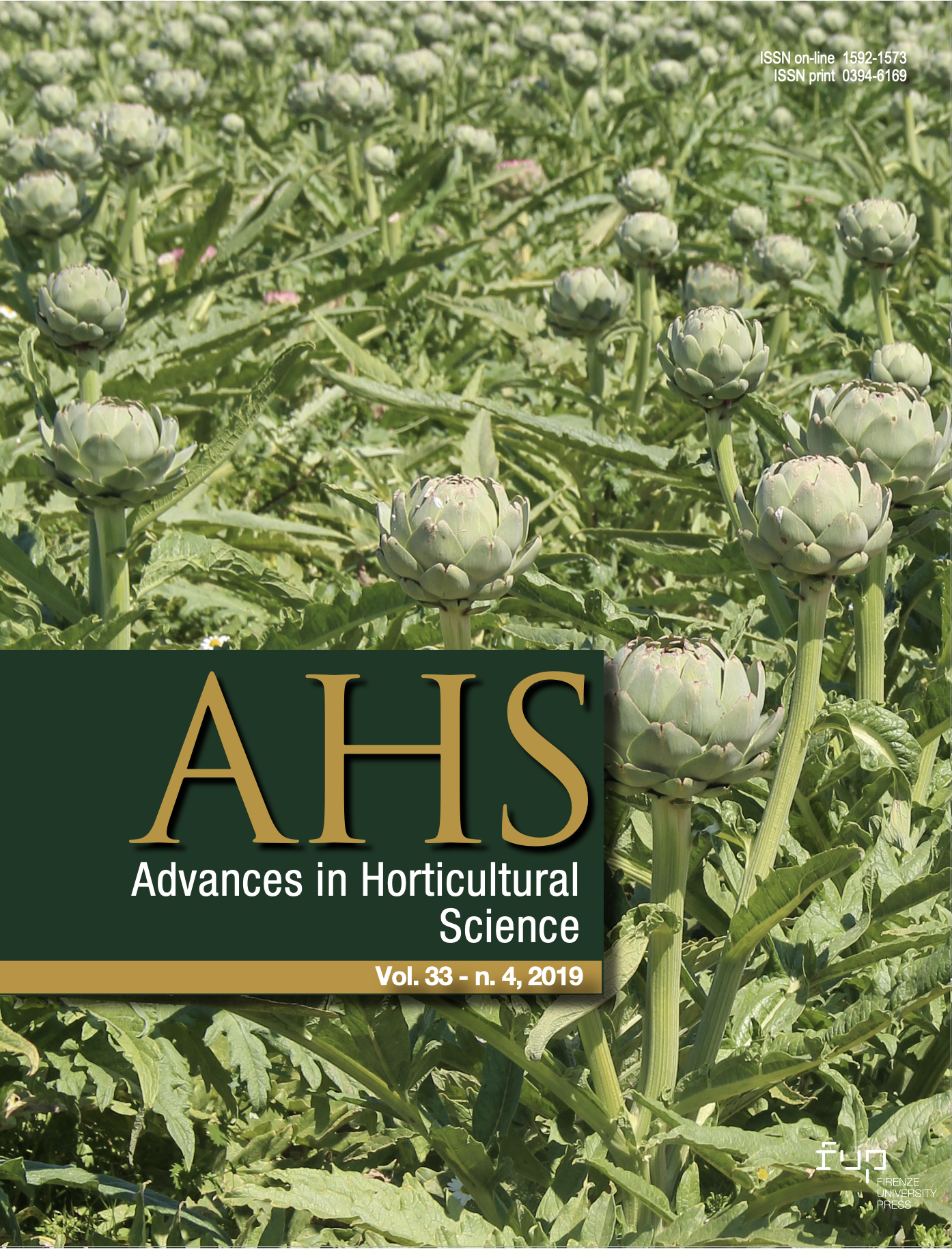Published 2020-01-24
Keywords
- genetic diversity,
- phenotype,
- pomegranate,
- RAPDs,
- SSRs
- varieties ...More
How to Cite
Abstract
The Italian research on P. granatum L. is still limited, although the study of local germplasm is extremely important in order to preserve the existing biodiversity and to identify potential useful characters for a renewed industry. The study aimed at characterizing for the first time ancient pomegranates, grown in Emilia Romagna (Italy), through 38 quantitative morphometric descriptors related to leaf, flower, fruit and seed, 42 RAPD and 12 SSR markers. Morphological analyses showed large variation of traits among accessions and the descriptors related to fruit and seed had the highest power of discrimination. The considerable variation found was consistent with ANOVA and PCA results. Among all RAPDs tested, 7 were selected for their polymorphism; whereas among selected SSRs, 8 presented differences in the genetic profiles allowing a good discrimination of the local pomegranate accessions. The genetic relationships among pomegranates were studied by UPGMA cluster analysis and the accessions were clearly regrouped in four different genotypes. The study has highlighted significant differences and interesting pomological characteristics in the local pomegranates, which confirmed the good potential of this germplasm for the pomegranate industry.






